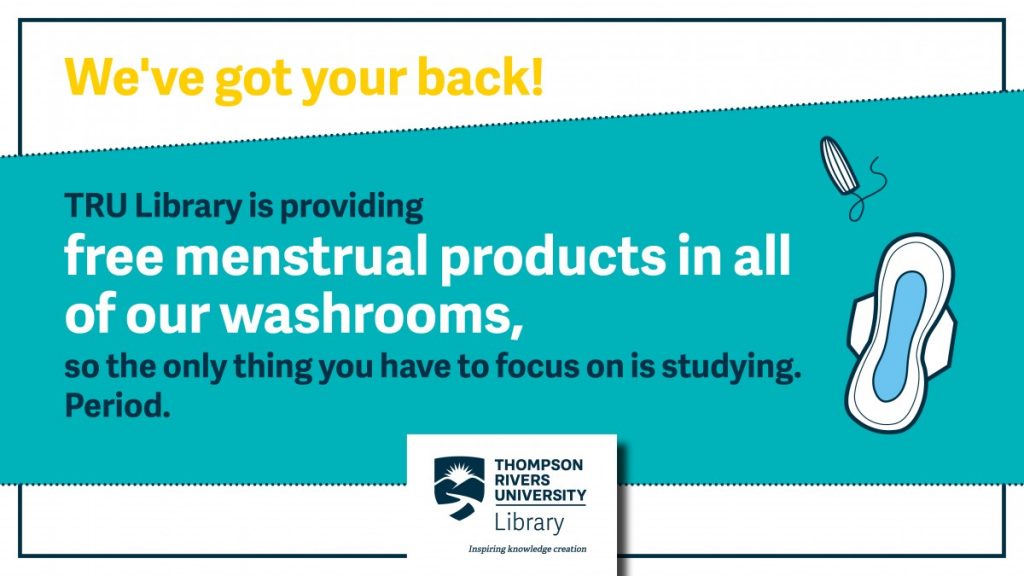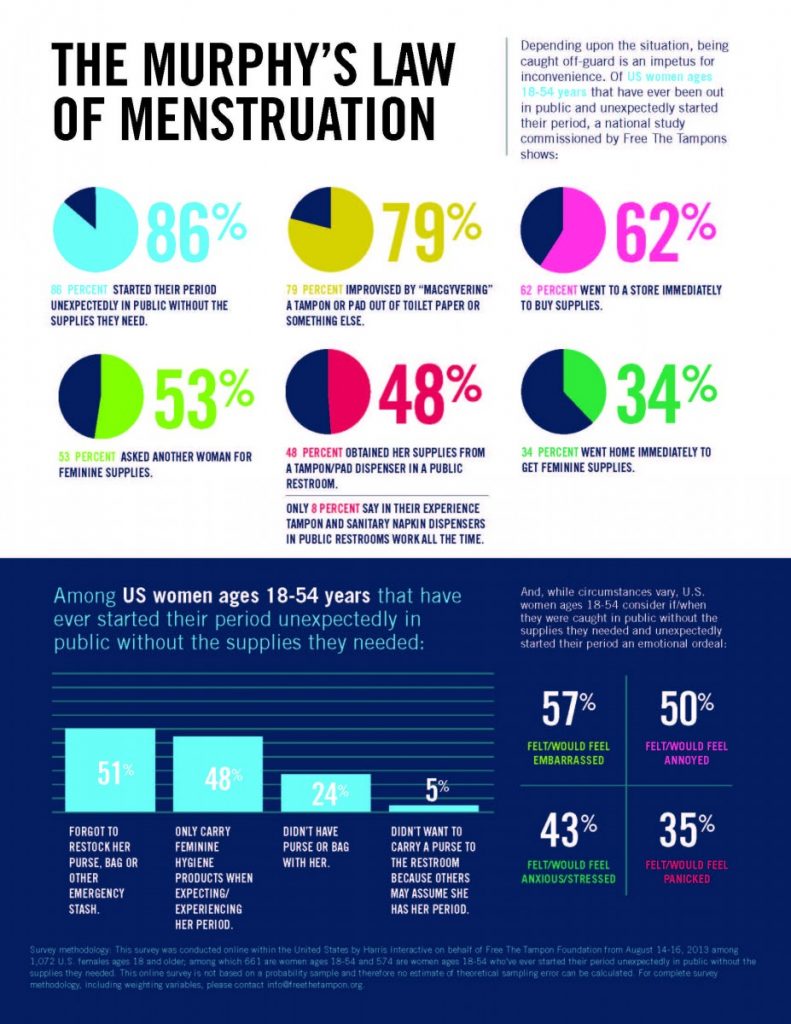Posted on: September 16, 2019

For some time at Thompson Rivers University (TRU), menstrual products have not been available through coin-operated dispensers in washrooms. While they are available for free by asking at the university’s Wellness Centre or by purchasing them at the campus bookstore, TRU Library’s Inclusion, Diversity, and Accessibility Committee (known as IDA) realized that a lack of accessible menstrual products creates several potential barriers for students. For example, students might be across campus from the Wellness Centre or bookstore when the need for supplies arises, or they might be on campus after hours, or during the summer semester when the Wellness Centre is closed. While the library has had a supply of pads and tampons at the front desk for such situations, students, especially masculine-presenting or gender-nonconforming students, may feel uncomfortable asking someone in a perceived position of authority for supplies. Students are also often in a position of financial strain, and having access to a few free products each month could help ease that pressure. These student-specific barriers are in addition to the typical issues surrounding menstruation supplies (called “Murphy’s Law of Menstruation” in the infographic below). Several universities and colleges have started offering menstrual products for free across campus on a decently small budget, such as Centennial College in Ontario and the University of Calgary. While we think that free products should be offered campus-wide, IDA’s budget can only support free supplies in the library’s washrooms. Starting this September, TRU Library will provide menstrual products in each washroom controlled by the library. This includes 3 women’s, 2 men’s, and 2 all-gender washrooms total across the two main branches. After purchasing products at Costco to get the most out of the budget, IDA will track product usage over a semester to determine if the initiative will be sustainable if run by the library, or if it will need further buy-in from the university as a whole.


